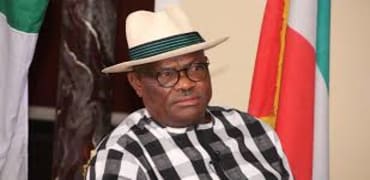FG Cuts Abuja Transport Fares by 40% to Ease Commuter Burden
FG Cuts Abuja Transport Fares by 40% to Ease Commuter Burden
By Achimi Muktar
In a game-changing move that’s turning heads across the capital, the Presidential Compressed Natural Gas Initiative (PCNGI) has slashed transport fares in Abuja by 40%, easing the pressure on commuters while rolling out job opportunities for over 2,000 Nigerian youths.
Announced at the bustling Area One Motor Park, the fare cut applies to CNG-powered taxis, which now dominate over half of the park’s fleet. The initiative, hailed as both a cost-saving relief and green energy push, was unveiled by PCNGI Programme Director and CEO, Engineer Michael Oluwagbemi, represented by David Idakwo, the North Regional Manager.
“This initiative directly targets the pockets of the people,” Idakwo told reporters. “We’ve worked closely with the NURTW to convert vehicles and agree on fare reductions. Today, that agreement takes effect.”
New Fares, New Era
The impact is immediate and visible:
Area One to Gwagwalada: Now N900, down from N1,500
Bwari and Dutse: N900, previously N1,500
Kuje: N720, slashed from N1,200
Galadimawa: N300, formerly N500
Mpape and Zuba: N600 and N900 respectively
These reductions reflect the growing use of compressed natural gas (CNG), a cleaner, cheaper alternative to petrol—particularly crucial in the aftermath of fuel subsidy removal.
Enforcement in Motion
To ensure smooth implementation, a PCNGI-NURTW task force is now on the ground. Fare tags clearly mark converted taxis, making it easier for passengers to identify vehicles applying the new pricing.
Ibrahim Jibril, Secretary of NURTW Garki Branch, confirmed over 75% of vehicles in the park are already CNG-powered.
“Only vehicles that have been converted will apply the new fare structure. We’re working hard to enforce this and make it seamless for commuters,” he said.
Beyond Transport: Youth Empowerment
The initiative isn’t just about lower fares—it’s about creating a future-ready workforce. Over 2,000 young Nigerians are currently being trained in CNG vehicle conversion, maintenance, and operations, marking a significant step in building local capacity for Nigeria’s clean energy future.
Under President Bola Ahmed Tinubu’s palliative strategy, PCNGI is emerging as a flagship solution—offering both economic relief and a sustainable energy path for millions.
So, if you’re in Abuja and heading out—your ride just got greener, cheaper, and more hopeful.





















